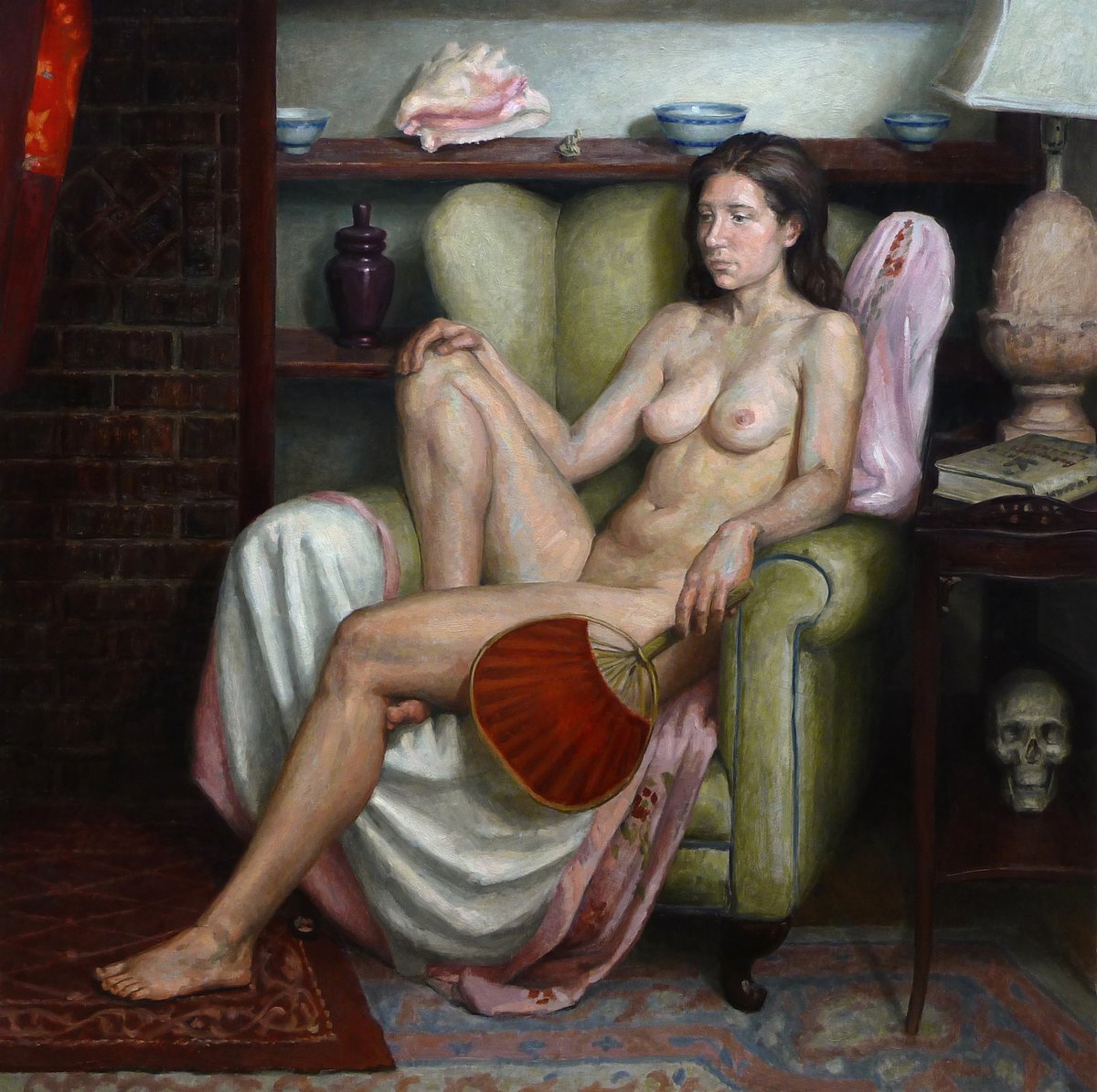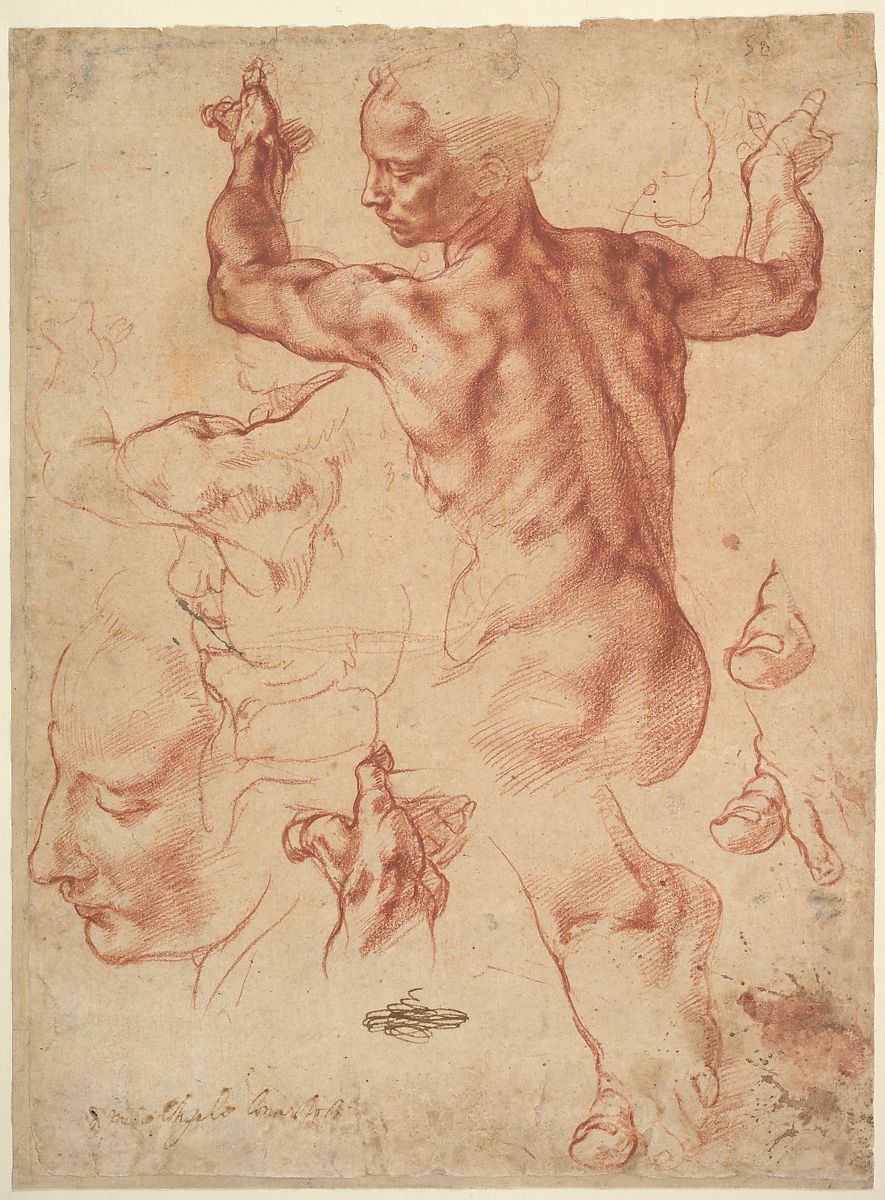Have an inquiry from an existing collector in my inbox, asking to be kept informed about a pencil drawing I'm working on, so🤞about that. Drawings akin to this have developed a significant role both in my artistic practice, and in the practicalities of my career.
(1/)
(1/)

Let's talk about studies. Customs vary from artist to artist, school to school, but in general, you don't just put brush to canvas and knock out a complex painting in a fury of inspiration; first you do studies of individual elements.
(Bouguerau examples)
(2/)

(Bouguerau examples)
(2/)


This isn't invariable, but I personally--in my larger figures, which represent a good proportion of my work--generally will do a highly worked-up drawing in pencil & chalks before starting on a painting.
(3/)

(3/)


This isn't actually me being at my most traditional or rigorous! Sargent here, for example, in "Gassed" is working in a traditional way, with a lot of looser studies of individual heads, hands, figures, and he probably did a small painted study to work out the color.
(4/)



(4/)




I personally fuse a lot of that into the drawing, working through variants of heads and hands in the course of the pencil (which I consider itself a stand-alone piece of art, part of making the painting, but nonetheless an independent statement.)
(5/)

(5/)


Basically, I like drawing, I think it offers its own expressive possibilities, and sometimes I get burned out on painting. Sometimes that means I need to shuffle around like a useless wraith for a few weeks, but sometimes I just need to put down the brush & draw instead.
(6/)

(6/)


I promised to talk about career practicalities too, though, so here goes: these drawings-as-independent-artworks are important to me & something I'd do even if I had eight figures in the bank, but in the real world, they're also awesome for helping smooth my way.
(7/)

(7/)


As a rule, sheets full of quick sketches of heads and hands and variants simply aren't salable objects. Certainly there are exceptions, and there are collectors who are very interested in the process, but as a generality, they're functional & will get filed or destroyed.
(8/)

(8/)


And let's talk specifics: it costs about $1-1.5k to take a figure from blank canvas to "there is a painting in a frame ready to hang on the wall." I'm maybe unusually profligate in model time, frames, and materials, but nonetheless; a show with 15 pieces requires capital.
(9/)
(9/)

The drawings help bridge that gap. If I can make & sell a drawing while painting a figure, it breaks me even on the whole process. I'm not getting fed, or keeping the lights on, but that show's worth of paintings in some sense autocthonically provided its own funding.
(10/)

(10/)


I'd like to again emphasize that I'm not drawing for money--I could have gone to med school or something--but there are also practicalities as re: collectors, money, and psychology that are worth considering. Let's consider this piece:
(11/)

(11/)


The drawing, framed, is about 24"x36" & is at a relatively approachable price point. The painting, framed, was about 5' wide, at a price point that was more of a commitment, at least for most people.
(12/)
(12/)

And just consider socially, when your mom comes to visit: Hanging a smallish pencil nude is not such a commitment as a full-color full-mantle-sized painting. There are simply more people in the world willing and able to commit to the former than the latter!
(13/)
(13/)
Anyway, tl;dr: drawings are a fundamental part of the painting process, I personally find them intrinsically satisfying as free-standing works of art, and I'm lucky to have found a way to integrate something I want to do into the practicalities of not getting a real job.
(14/14)



(14/14)




• • •
Missing some Tweet in this thread? You can try to
force a refresh













